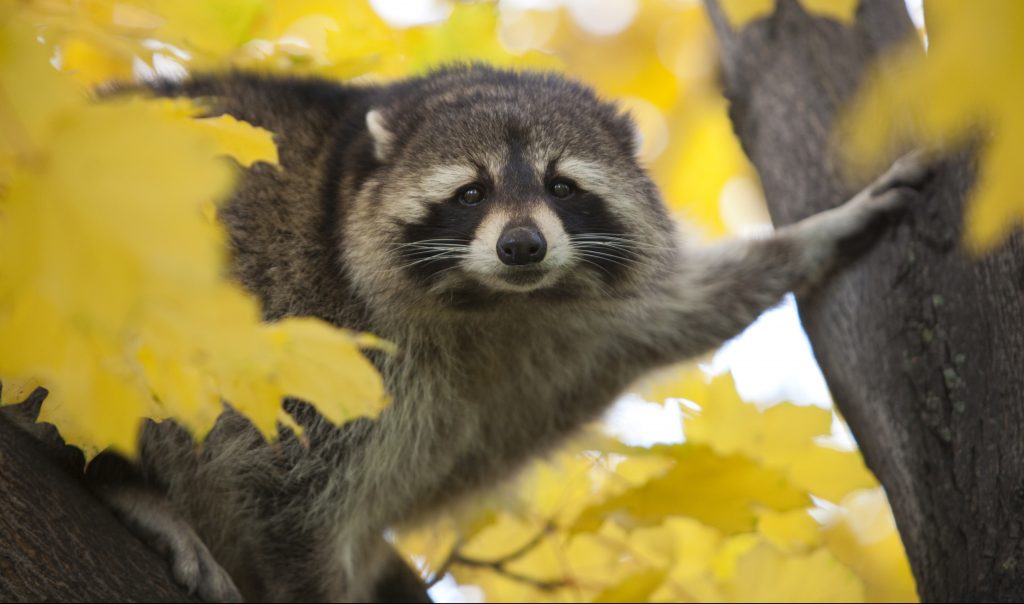Out of all the mammals in the United States, raccoons are truly among the most fascinating. That is because there are so many traits that make raccoons interesting members of the animal kingdom. For instance, raccoons are incredibly intelligent, much like dogs, and just as curious and cute too! They can remember places they’ve been, figure out solutions to problems, learn tricks, and more! So if you don’t know much about raccoons, it will certainly please you to learn the fundamental facts surrounding this fascinating species. Continue reading to do just that!
The Common Raccoon
Species: Procyon lotor
Class: Mammalia
Order: Carnivora
Family: Procyonidae
Genus: Procyon
Physical Characteristics
Raccoons are well-known for their ringed tails, long whiskers, and black fur around their eyes. They range in size and weight, but the average adult male will be between 2 to 3 feet tall and between 15 and 20 pounds. They have dexterous paws that are similar to human hands, which gives them the ability to grasp, pry, pull, and more. They also have long sharp claws that make them excellent climbers.
Diet and Habitat
Raccoons are omnivores, which means they eat everything, including meat, vegetables, fruit, and nuts. Since they are opportunistic eaters, their specific diets depend on the region in which they live and the availability of food in their area. Raccoons commonly eat frogs, birds, rodents, snakes, insects, fruit, legumes, vegetables, and more. As for their homes, they make dens in hollowed trees, or find shelter in anything worthy, including residential structures like attics, porches, sheds, and more!
Reproduction
Male raccoons are called boars and females are called sows. Mating season is in late winter and early spring. Female gestation periods are around 65 days, and they generally give birth to 3 to 5 raccoon babies, called kits. Raccoon kits stay with their mother until they reach sexual maturity at around 6 months of age. Male raccoons do not have a role in raising their kits.
Nuisance Raccoons
Although raccoons are cute, innocent, and smart, they can be quite the nuisance when they end up near our homes and businesses. When this happens, raccoons can cause extensive damage, but they also pose health risks because they are known carriers of several infectious diseases. If you have raccoons on your property, contact a professional wildlife control company for safe and humane assistance. Raccoons should never be harmed or killed under any circumstances.
Louisville Raccoon Control
Call Louisville Raccoon Removal at 502-553-7622 for prompt and humane raccoon control service in Kentucky. Our friendly wildlife removal contractors are happy to answer questions, give advice, and manage your raccoon problems, anytime. Give us a call at 502-553-7622 to learn more about raccoon control in Louisville, KY today.

